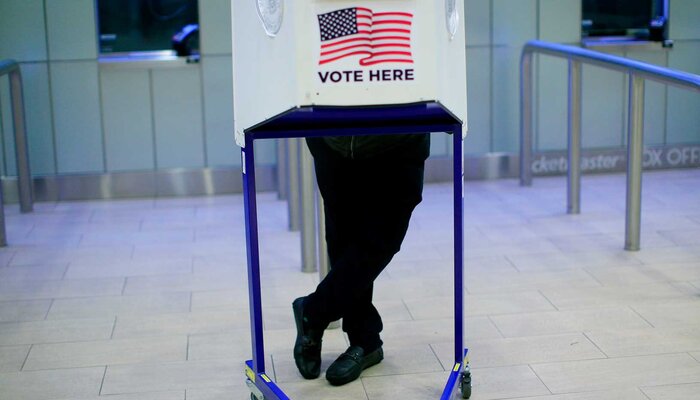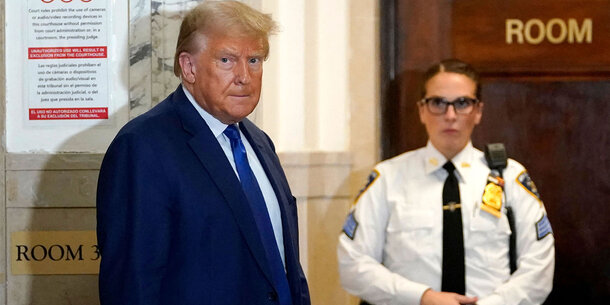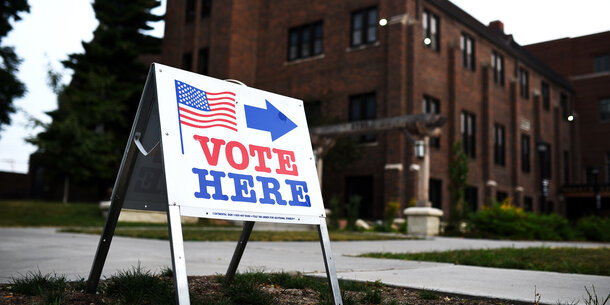This has been a big week for the movement to restore voting rights to people who have been convicted of a crime. Legislative chambers in New York and Washington State both passed bills that would automatically restore voting rights to all people with criminal convictions who are on probation or parole. And a newly introduced U.S. Senate bill would do the same for all federal elections across the country.
Denying the right to vote to people who are home from prison, working, paying taxes, and raising families serves no legitimate law enforcement purpose, and empirical evidence suggests that people who are civically engaged are less likely to be re-arrested.
The passage of these bills signifies growing national momentum on voting rights restoration. Other states including California, Colorado, Nevada, and New Jersey have enacted reforms in the past two years.
On Wednesday, the New York State Senate passed a bill that would automatically restore voting rights to all New Yorkers upon release from prison, repealing a Jim Crow-era law originally intended to prevent Black men from voting. The bill now heads to the New York State Assembly.
New York’s current statute allows people with felony convictions to vote while on probation, but not while on parole. This policy has its roots in the era immediately after the Civil War, when New York lawmakers sought to limit the ability of Black men to vote. The law on the books today has remained unchanged in substance for 50 years and primarily disenfranchises people of color: approximately 75 percent of people who are home from prison but ineligible to vote are Black and Latino.
New York took a significant step forward in 2018, when Gov. Andrew Cuomo began using his pardon power to restore voting rights to people on parole. However, an executive action is not a permanent or practical solution. The current confusing process results in a weeks-long delay between an individual’s release from prison and when they get their voting rights restored.
Further, the policy could be reversed by a future governor at any time. The new bill would codify the right to vote for all people who have been released from prison and require officials to provide notice and an opportunity to register to all newly eligible people upon release.
This week’s success in New York is the result of years of advocacy by a broad coalition. However, despite recent progress on election reform in New York, this policy never advanced far in the legislature. Over the last few years, a broad coalition has pushed for the bill. The Brennan Center has been a leader in this coalition alongside people directly impacted by disenfranchisement, civil rights groups, unions, faith leaders, law enforcement, and reentry service providers.
Across the country in Washington State, the House also passed a bill Wednesday that would also automatically restore voting rights to all people with a criminal conviction who are not currently incarcerated. If passed by the state Senate and signed by Gov. Jay Inslee, the legislation would restore voting rights to over 20,000 people.
Washington’s current policy, which prevents those with felony convictions from voting while they are on parole or probation, has a strong disproportionate racial impact: while Black and Indigenous people make up only 6 percent of Washington’s population, they make up 16 percent of those disenfranchised through the current system.
This progress in Washington also would not have been possible without the strong coalition supporting it. The Washington Voting Rights Restoration Coalition is a diverse partnership of civil rights organizations, faith community groups, and directly impacted people that has pushed for this legislation for several years. The Brennan Center is a member of the coalition and has been advocating on the issue in the state for over a decade in the courts and the legislature.
The bill’s lead sponsor in the House is Rep. Tarra Simmons, who was herself a leader in the coalition before becoming the state’s first formerly incarcerated person elected to the legislature. Thanks to her efforts and those of others the bill may finally make it across the finish line this year.
If these bills are enacted, the total number of states that allow everyone not currently incarcerated to vote will grow to 21. It would also leave Connecticut as the only state that makes a distinction between probation and parole for voting purposes — and legislation recently introduced in the Connecticut legislature could end that distinction there too.
Rights restoration advocates are making progress in other states, as well: new legislation has passed one chamber in New Mexico and a constitutional amendment is under consideration in Virginia. Thanks to executive orders from Kentucky Gov. Andy Beshear and Iowa Gov. Kim Reynolds in 2019 and 2020, respectively, there are now no states that permanently disenfranchise all people with felony convictions.
At the federal level, on Thursday Sen. Ben Cardin (D-MD) introduced the Democracy Restoration Act, which would automatically restore the right to vote in federal elections nationwide to people with past criminal convictions who are not in prison. This measure is also part of the For the People Act, a landmark democracy reform bill before the House that enjoys broad public support.
Codifying the right to vote for all people living in our communities is a good policy decision and the right thing to do. Now, lawmakers in New York, Washington State, and elsewhere must show their commitment to overturning racist policies and building a truly inclusive democracy.






